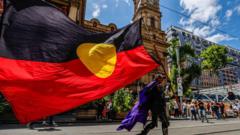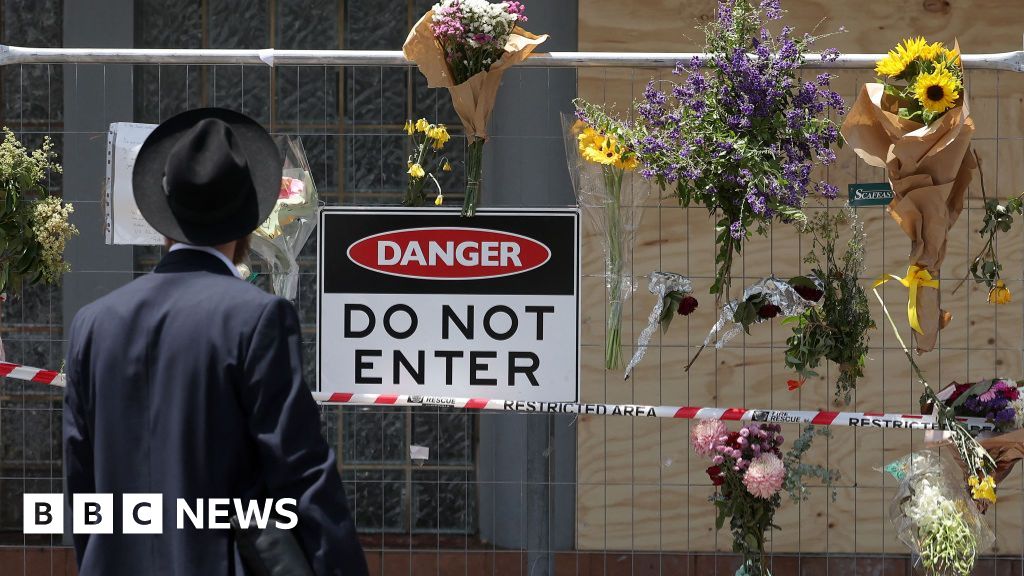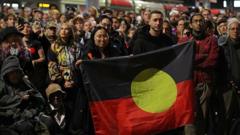In the lead-up to Australia's upcoming national election, Indigenous concerns appear conspicuously absent from the political discourse, especially in regions like Yarrabah, a community in Far North Queensland. As residents go about their lives, from fishing at the shores to enjoying local ice cream, electoral posters and candidate visits are nowhere to be found. Suzanne Andrews, chief executive of Gurriny Yealamucka Health Services, expresses frustration over the lack of engagement: "We don't see any placards. No-one's visiting us."
Indigenous Australians represent approximately 3.8% of the country’s population yet remain the most socio-economically disadvantaged group, a reality many leaders acknowledge as a "national shame." However, during the latest campaign, both Prime Minister Anthony Albanese and Opposition leader Peter Dutton have largely omitted speaking on First Nations issues. The few mentions occurred during a final debate when Dutton called for a reduction in "welcome to country" ceremonies, framing it within a cultural debate rather than addressing the pressing disadvantages faced by Indigenous communities.
Experts say that these political reticences may stem from the repercussions of the failed 2023 Voice to Parliament referendum, which sought to include Indigenous recognition in the constitution. With 60% of voters rejecting the proposed initiative, many politicians have chosen to avoid what they consider divisive issues to minimize electoral risks. Andrews reflects on this shift, lamenting that political parties are now "playing it safe" by steering clear of "hot Aboriginal issues."
Lidia Thorpe, an independent senator, criticizes Albanese for not mentioning Indigenous issues following the referendum's failure. Thorpe advocates for a legally binding treaty between the Australian government and First Nations peoples rather than mere recognition. She argues that past elections, even if only superficially addressing Indigenous matters, at least acknowledged their existence. Now, she asserts, “it’s complete silence."
The lack of focus on Indigenous issues marks an apparent regression to a "norm" where such discussions have often been sidelined, preserving the status quo. Despite governmental strategies aimed at "closing the gap" between Indigenous and non-Indigenous Australians, recent reviews indicate a troubling trajectory, with many goals failing to be met.
As societal perspectives also shift, a study from the Australian National University discovered declining public belief in the government's responsibility to address Indigenous disparities. Though some politicians, such as Bob Katter, express personal concern for Indigenous struggles, they admit that openly discussing these matters on campaign trails may prove electorally unwise.
Following the referendum, negative social consequences emerged, including an uptick in incidents of racism towards First Nations people. Emotional trauma rippled through communities as youth, like Andrews' daughters, faced harassment while pursuing education elsewhere. The intense public and media scrutiny of Indigenous issues during the referendum debate has led some community members to withdraw from political discussions altogether.
Millima May, another Indigenous voice, highlights the shift in community sentiment towards disengagement. Many Indigenous Australians now prefer to opt out of a political landscape they find untrustworthy and hostile. Without a commitment from political leaders to engage in meaningful dialogue, hope for enhanced representation and improved conditions for Indigenous peoples remains dim. The need for a transformative discussion in Australian politics has never been more urgent.
Indigenous Australians represent approximately 3.8% of the country’s population yet remain the most socio-economically disadvantaged group, a reality many leaders acknowledge as a "national shame." However, during the latest campaign, both Prime Minister Anthony Albanese and Opposition leader Peter Dutton have largely omitted speaking on First Nations issues. The few mentions occurred during a final debate when Dutton called for a reduction in "welcome to country" ceremonies, framing it within a cultural debate rather than addressing the pressing disadvantages faced by Indigenous communities.
Experts say that these political reticences may stem from the repercussions of the failed 2023 Voice to Parliament referendum, which sought to include Indigenous recognition in the constitution. With 60% of voters rejecting the proposed initiative, many politicians have chosen to avoid what they consider divisive issues to minimize electoral risks. Andrews reflects on this shift, lamenting that political parties are now "playing it safe" by steering clear of "hot Aboriginal issues."
Lidia Thorpe, an independent senator, criticizes Albanese for not mentioning Indigenous issues following the referendum's failure. Thorpe advocates for a legally binding treaty between the Australian government and First Nations peoples rather than mere recognition. She argues that past elections, even if only superficially addressing Indigenous matters, at least acknowledged their existence. Now, she asserts, “it’s complete silence."
The lack of focus on Indigenous issues marks an apparent regression to a "norm" where such discussions have often been sidelined, preserving the status quo. Despite governmental strategies aimed at "closing the gap" between Indigenous and non-Indigenous Australians, recent reviews indicate a troubling trajectory, with many goals failing to be met.
As societal perspectives also shift, a study from the Australian National University discovered declining public belief in the government's responsibility to address Indigenous disparities. Though some politicians, such as Bob Katter, express personal concern for Indigenous struggles, they admit that openly discussing these matters on campaign trails may prove electorally unwise.
Following the referendum, negative social consequences emerged, including an uptick in incidents of racism towards First Nations people. Emotional trauma rippled through communities as youth, like Andrews' daughters, faced harassment while pursuing education elsewhere. The intense public and media scrutiny of Indigenous issues during the referendum debate has led some community members to withdraw from political discussions altogether.
Millima May, another Indigenous voice, highlights the shift in community sentiment towards disengagement. Many Indigenous Australians now prefer to opt out of a political landscape they find untrustworthy and hostile. Without a commitment from political leaders to engage in meaningful dialogue, hope for enhanced representation and improved conditions for Indigenous peoples remains dim. The need for a transformative discussion in Australian politics has never been more urgent.



















